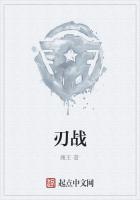The Escort commanded by the hunter consisted of one hundred men.They were all Boschjesmen—hardworking,neither irritable nor quarrelsome,and able to bear great physical fatigue.Formerly,before the missionaries came,these were liars,inhospitable,addicted to murdering and plundering,and usually taking advantage of their enemies’slumber to massacre them.The missionaries have to a great extent softened their manners in these respects,but the natives are still more or less addicted to robbing farms and lifting cattle.
Ten waggons,similar to the one the bushman had brought to the Morgheda Falls,formed the expedition’s means of transport.Two of these waggons—a sort of house on wheels—were fitted up with a certain degree of comfort,for the use of the Europeans.Colonel Everest and his companions were thus followed by a wooden dwelling with a dry floor,roofed with a waterproof covering,containing bed and toilet utensils.In camp it was so much time saved,as the tent arrived already pitched.
One of these waggons was given up to Colonel Everest and his two countrymen,Sir John Murray and William Emery.The other was occupied by the Russians,Strux,Palander,and Zorn.Two other vehicles arranged similarly were allotted,one to the five English,the other to the five Russians,who formed the crew of the Queen and Czar.
The hull and engine of the launch,taken to pieces and packed in one of the waggons,had,of course,followed the travellers across the African desert.Lakes are numerous in the interior of this continent:several might be found on the commission’s line of march,and then the launch would be very useful.
The remaining waggons carried the instruments,provisions,luggage,arms,and ammunition belonging to the travellers,as well as collapsible pylons,signal posts,reflectors,all the equipment used in the trigonometrical survey,and lastly the gear of the escort.
The Boschjesmen’s provisions consisted principally of‘biltong,’or antelope’s,buffalo’s,or elephant’s flesh cut into long strips,and either dried in the sun or exposed to the action of a slow fire,bringing it to a condition in which it will keep good for months.This mode of preparation economises salt,and is much used where there is a scarcity of that useful mineral.As for bread,the men counted on replacing it by fruits and roots,beans and the bulbs of such types of mesembryanthemum as the native fig,chestnuts,and the marrow of a variety of the zmie,which is also called‘Caffre’s bread.’These supplies,borrowed from the vegetable kingdom,could be renewed as they went on.As for animal food,the hunters of the escort were remarkably skilful in the use of their bows and arrows,and in throwing the assegai,and it was their business to furnish the caravan with fresh meat.Six Cape oxen,about sixteen or seventeen hands high,were harnessed to each waggon.Thus hauled,these heavy vehicles,clumsy examples of primitive construction,need fear neither hills nor swamps and rolled along surely,if not rapidly,on their massive wheels.
The horses were small,and of Spanish origin,black or grey:they had been imported from South America.They were gentle,but full of courage,and were highly esteemed.Among the fourfooted followers there were also half-dozen tame quaggas,a species of ass.These were to carry the various surveying instruments from point to point during the short expeditions necessary for the trigonometrical operations,and to take them where the ponderous waggons would not dare to venture.
The bushman was exceptionally well mounted on a beautiful striped zebra,whose coat excited the unbounded admiration of Sir John Murray;it was twelve hands high at the shoulder,and seven feet from muzzle to tail.Naturally timid and shy,it would allow no one but Mokoum,who had broken it in,to get on its back.Several dogs of a half-wild breed,sometimes wrongly called the‘hunting hyaena,’followed the caravan;in shape and in the length of their ears they bore some resemblance to the European beagle.
Such was the composition of the caravan about to plunge into the deserts of Africa.The oxen paced along leisurely,guided by their drivers’‘sjamboks’which stung their sides,and it was a strange sight to see this troop winding along the hills.
In what direction was the expedition going after having quitted Lattakou?
‘Straight before us,’Colonel Everest had said.
In fact,neither Colonel Everest nor Matthew Strux were then able to decide upon any particular direction.Before commencing their trigonometrical operations,they had to find some extensive level plain,on which to set out the base of the first of those triangles which were to cover the region of Southern Africa over a stretch of several degrees.
Colonel Everest explained to the bushman what he needed.With the aplomb of a savant to whom the language of science is familiar,the Colonel talked about triangles,adjacent angles,bases,measurement of the meridian,zenith distances,and so forth.The bushman let him talk for some moments,and then,interrupting with a gesture of impatience-
‘Colonel,’said he,‘I can’t understand anything about your bases and angles and meridians,nor can I at all understand what you want to do in the African desert.But that,after all,is your business.What do you want me to do?—to find you a vast level regular plain?Well,I’ll try to find one for you.
And at his orders the caravan,which had just crossed the hills overlooking Lattakou,turned towards the south-west.This direction brought them rather southward of the town,towards the flat country watered by the Kuruman.The bushman hoped to find on the table-land a plain favourable to the Colonel’s projects.
From this day forward the hunter’s place was usually at the head of the caravan.Sir John Murray,who was well mounted,never left him,and from time to time the report of a gun let his colleagues know he was making acquaintance with African game.The Colonel,lost in thought,let his horse carry him as it liked,while he reflected on the result of such an expedition,and how difficult it was to direct in such wild regions.Matthew Strux,sometimes in the waggon,sometimes on horseback;according to the nature of the ground,hardly opened his mouth;while Nicolas Palander,as bad a rider as could be found anywhere,oftener followed the line of march on foot,or stayed in the waggon,absorbed in solving some high problem of mathematics.
If during the night William Emery and Michel Zorn each occupied his own particular vehicle,they were at least always together during the march.The friendship between these two young men became greater every day,and was cemented more strongly still by the incidents of travel.From one halting-place to another they rode side by side,talking and discussing,sometimes far ahead,sometimes far away on the flanks of the expedition,when the plains extended out of sight.There they were free,and,as it were,lost in the wilds of Nature.
How they talked about everything with the sole exception of science!How they forgot figures and problems,calculations and observations!They were no longer as tronomers—observers of the starry arch of the skies—but rather two boys escaped from school,pleased to traverse the dense forest or to gallop over the boundless plains,and breathe the fresh air,loaded with the fragrance of the flowers.They laughed;yes,they laughed like ordinary people,and not like serious persons whose usual associations were comets and so forth.If they never ridiculed science,they sometimes smiled at those austere savants who do not seem to belong to this world.But there was nothing ill-natured in all this;they were two excellent,expansive,amiable,and devoted young men,who formed a singular contrast to their stiff and unbending chiefs,Colonel Everest and Matthew Strux.These two savants were often the subject of their comments.William Emery,through his friend Zorn,was beginning to know them.
‘Yes,’Michel Zorn told him,‘I’ve often noticed them during our voyage on the Augusta,and I’m sorry to have to admit that these two men are jealous.If Colonel Everest seems to be leader of this expedition,Matthew Strux is no less his equal.The Russian Government has defined his position quite clearly.Our two leaders are each as domineering as the other,and besides,as I said before,they’re jealous of each other after the manner of savants,the worst jealousy of all.’
‘And the most unreasonable,’replied Emery,‘for it is a question of discovery,and each of us profits by the exertions of all.But if you’re right,and I’m inclined to think you are so,it’s a very unlucky thing for our expedition,my dear Zorn.In our case,it is absolutely essential that there should be the most complete unity for so delicate an operation to be successful.’
‘No doubt,’agreed Zorn,‘and I very much fear that it no longer exists.Only imagine our disorder if every detail of the operation,the choice of the base,the method of calculation,the positon of the stations,the verification of the figures,should provoke a fresh discussion every time!If I’m not mistaken I can foresee many a dispute when we come to compare our duplicate results,or to make observations which will have enabled us to reach the four hundred thousandth of a fathom.’
‘You frighten me,my dear Zorn,’said William Emery;‘it would certainly be painful to go so far and then to fail for want of unity in such an enterprise.God grant your fears won’t be realised.’
‘I hope so,indeed,William,’replied the young Russian;‘but I repeat,I was present,during our voyage,at several discussions of scientific method.They convinced me that there’s the most unjustifiable obstinacy on the part of both Colonel Everest and his rival;and at bottom I could see that jealousy was its cause.’
‘But they never leave one another,’Emery commented.‘You couldn’t surprise one without the other.They’re inseparables,more so than ourselves.’
‘Yes,’replied Zorn,‘they are inseparables,it is true,but they don’t exchange ten words during the whole day.They keep a constant watch over each other.If one doesn’t succeed in eliminating the other,we shall have to work under deplorable conditions.’
‘And in your opinion,’asked William with some hesitation,‘which of these two savants would you wish to—’
‘My dear William,’interrupted Zorn very frankly,‘I would willingly own as leader whichever of the two can succeed in taking the lead.In scientific questions I have no prejudices,no national amour propre.Matthew Strux and Colonel Everest are both very remarkable men.One is as good as the other.England and Russians alike ought to profit by the result of their work.So it must matter but little whether that work be directed by an Englishman or by a Russian.Don’t you agree?’
‘Absolutely my dear Zorn,’replied Emery;‘so don’t let’s be led away from our object by absurd prejudices,but,as far as we can,let’s both work together for the common good.Perhaps we may be able to avert the blows which the two adversaries may aim at each other.Besides,your countryman,Nicolas Palander……’
‘He,’laughed Zorn—‘he’ll never see nor understand anything;he would calculate for anyone,so long as he’s allowed to calculate.He is neither Russian,nor English,nor Prussian,nor Chinese.He isn’t even an inhabitant of this sublunary globe.He is Nicolas Palander,and that’s all.’
‘I can’t say as much of my countryman,Sir John Murray,’replied William Emery;‘he’s a thorough Englishman,but he’s also an ardent sportsman,and he’ll ride off after some giraffe or an elephant sooner than plunge into a scientific discussion.So we’ve only ourselves to trust to,my dear Zorn,to soften the effect of the unending contact of our chiefs.I need not add that,happen what may,we shall always be the frankest and most loyal of friends.’
‘Always,happen what may,’Zorn held out his hand to his friend William.
The caravan,guided by the bushman,still went on towards the southwest.About noon on 4th March it reached the base of those long wooded hills which it had followed since it left Lattakou.The hunter was not mistaken;he had brought the expedition to the plain.But this plain was undulating and useless for the preliminary triangulation,so they did not come to a halt.Mokoum placed himself once more at the head of the horsemen and waggons,while Sir John Murray,William Emery,and Michel Zorn pushed on before him.
Towards the close of the day the whole troop reached one of those stations occupied by wandering farmers,those Boers who stay for a time in one place because of the richness of the pasture.Colonel Everest and his companions were hospitably received by the colonist,a Dutchman,the head of a numerous family,who absolutely refused to accept any remuneration for his services.He was one of those bold,hardworking,sober men,whose slender capital,employed with judgment in breeding cattle and goats,soon becomes a fortune.When the pasture is exhausted,the farmer,like a patriarch of old,seeks a fresh camping-spot,among luxuriant meadows,and there once more takes up his abode.
This farmer told Colonel Everest,very helpfully,where he could find a large plain about fifteen miles further on,a vast level stretch most favourable to geodesical operations.
The next day,5th March,the caravan started at dawn.They marched on all the morning.Nothing would have varied the monotony of the journey if John Murray had not brought down with a bullet at twelve hundred yards a strange animal,with the muzzle of an ox,a long white tail,and its forehead armed with painted horns.It was a gnu,a species of wild ox.
The bushman was astonished to see the animal struck with such precision at such a distance and dropping dead at once.The animal,about fifteen hands high,supplied a quantity of excellent meat,and the gnus were henceforward especially looked out for by the hunters of the caravan.
About noon they arrived at the place mentioned by the farmer.It was a prairie,boundless towards the north,and its surface was completely free from any irregularity.No better situation could be imagined for measuring a base.So the bushman,after reconnoitering the neighbourhood,returned to Colonel Everest and said:
‘The plain you asked for,Colonel!’















